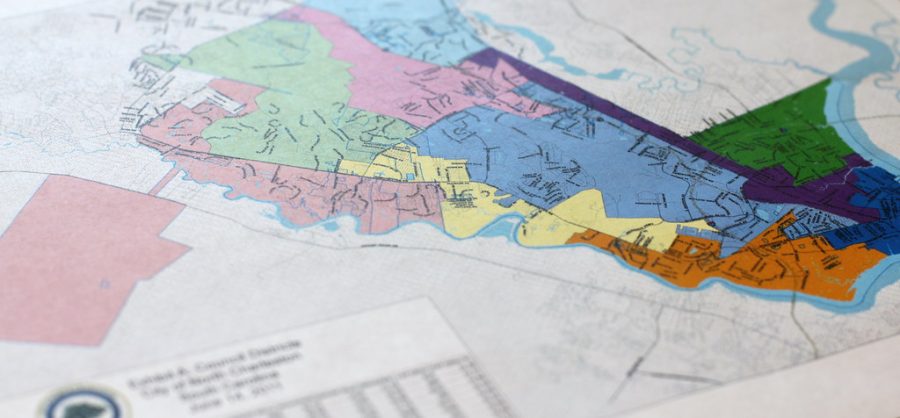Redistricting isn’t the business of the courts, it’s up to the people
Gerrymandering is back in the courtroom, but this poses a constitutional problem
April 16, 2022
Throughout the past months, the news has been strewn with stories about lawsuits over gerrymandering in many states, both Republican and Democrat. While many Americans want the courts to step in and upend the districts that have been drawn in their states, I do not think that is a prudent move, both politically or constitutionally. Moving forward, it would be wise for the courts to remove themselves from the redistricting arena and allow states to draw maps that their elected legislators decide are acceptable.
After the 2020 elections, state legislatures were charged with redistricting their states for the next decade on a state and federal level. The legislators who were charged with this task had all been elected by their constituents in a fair and free manner. The majorities that sat in these chambers had also been specifically elected to enact policies, including redistricting maps that favored their particular party. In other words, since the state of Georgia had a Republican legislature, it could enact maps that favored Republicans, while the state of Illinois, which had a Democratic legislature, could enact maps favoring their party. However, the hyperpartisanship in this country has not allowed this process to go smoothly and has caused many lawsuits to be brought to the courts, including the Supreme Court, in the hopes of overturning a legislative map the plaintiff party finds unfavorable. This is a destruction of how our constitutional system is supposed to work and has only led to the increased role of courts in legislating.
During the recent cycle of redistricting, the clearest example of the courts interfering in redistricting was in North Carolina. Following the 2020 North Carolina elections, Republicans had majorities in both chambers, therefore allowing them to enact Republican-leaning maps. Even though the state has a Democratic governor (Roy Cooper), he has no power to veto the maps. After the Republicans passed their maps, which would have given them an advantage of 10-3 (with 1 swing seat) for the House of Representatives, Democrats quickly sued the state. The Republican maps were allowed in a state court, but after review by the state Supreme Court, which has a composition of 4 Democrats and 3 Republicans, the maps were struck down as unconstitutional. The Republicans appealed to the Supreme Court, which refused to overturn the state Supreme Court’s ruling, thus forcing the legislature to enact new maps. The legislature quickly drafted a new map, which would have given Republicans a 10-3 advantage, but with some of their seats being more competitive. However, the state Supreme Court chose to implement another map, which they deemed more desirable, thus giving the state an 8-6 delegation, with a small Republican majority. Whether the map is fair or not, the courts should not be the stewards of redistricting and should not diminish the power of state legislatures to pass their own legislative maps.
The opposite happened in the state of Maryland, where Republicans sued Democrats for gerrymandering. After a long review of the redistricting maps, a judge threw out the Democratic-leaning maps and forced the legislature to draw fairer ones. However, political maps are not the only ones that have been fought over in court. Racially gerrymandered maps have also been a point of much contention, especially in the decades following the passage of landmark legislation, such as the Voting Rights Act. While every American, regardless of race, is entitled to their fair representation, it should not be mandated for a state to draw a quota of minority districts. This is an unfair and illegal constraint that has been placed on redistricting for many decades now. If the legislatures are to be told how to best do their jobs, it would be better for them to not do them at all.
The removal of redistricting from the hands of legislatures has hastened the erosion of the judicial fabric of America. Whether through unfair constraints, such as minority quota districts or through the limit on politically gerrymandered districts, the courts have gained far too much authority to govern how the redistricting process is to happen. It is time to allow the people of the United States to elect the representatives they trust to make decisions for them. The courts of the United States must take a step back and not interfere in matters where their concerns are not pertinent. The separation of powers laid out in our constitution must be restored and the end of redistricting hindrances may just be the beginning of that restoration.



